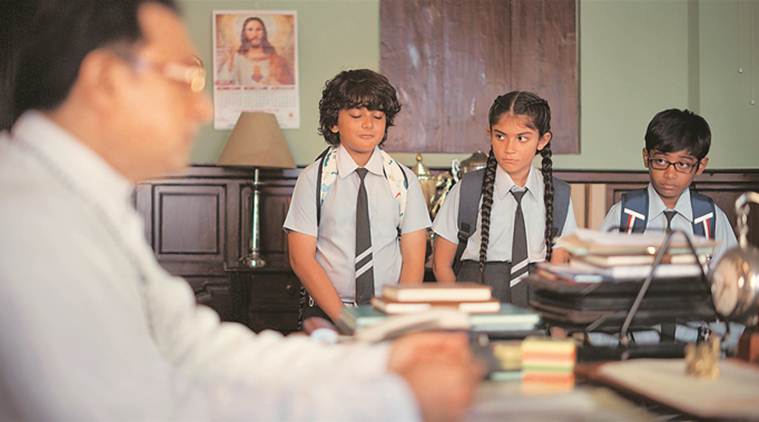
Those who would consider a self-writing typewriter to be a boon will have second thoughts after watching filmmaker Sujoy Ghosh’s latest offering, Typewriter. The five-part web series that started streaming last week on Netflix had been on his mind for a while now. “I was thinking of working with children and perhaps vicariously go back to my childhood and live everything that Enid Blyton taught me,” says Ghosh, 53, who has directed the show and also co-written it with Suresh Nair.
Central to the plot is a ragamuffin ‘ghost club’ that comprises four children and a golden Labrador — a direct reference to Enid Blyton’s The Famous Five series. There is also a ‘haunted’ colonial era villa and a ghost called Fakeer, whose ancestry can be traced to a far away place called Sultanpore. “While growing up in Calcutta in the ’70s, I read everything that was even remotely related to horror or ghosts. Till now, my house is stuffed with volumes of ghost stories. I was initiated into the genre through the writings of Bibhutibhushan Bandyopadhyay and Rabindranath Tagore. I was later introduced to Edgar Allan Poe and Stephen King. I also read Bengali horror and my grandmother was always there to fill up the void, if there was any,” adds Ghosh, who has films like Kahaani, Jhankar Beats and Badla to his credit.

The clickety-clack of a typewriter is a recurring audio sound in the series. The sound of the keys reverberate in the cavernous villa. “I wanted to explore the origin of words or a script. When I have an idea, I type it out — that’s where the sound of the keys tapping came in. We usually have the typical sound of a kettle whistling or things falling — which are good sounds — but I wanted something new,” he adds.
While Ghosh’s narratives often feature children, here they are central to the film. We have Sameera, an adventurous and precocious girl, who is the founder of the ghost club. Gablu, Satyajit and Nick accompany her. “Satyajit Ray had said if you can get children to act, you can do anything. It was a herculean task for the initial three-four days of the shoot but I finally figured the trick — treat them like they are. To add to the drama, we also had Buddy, the dog,” says the filmmaker.

Not all his experiments have worked. The man behind acclaimed thrillers such as Kahaani (2012) and Badla (2019), Ghosh seems to have struggled with the ghost mystery that forms the core of Typewriter. The series has faced flack for being crowded with multiple horror references — from the blood moon to a reincarnated soul. “The idea was to bring all my influences, all the horror that I have read and grown up on. All the inferences are supposed to feed into each other,” says the director.
While Indian folktales have characters such as Vikram and Betaal and other djinns, it is not often that the fantastical stories are skillfully executed on the big screen. “Films are a game of numbers. We are classically a star-driven industry — or if not star, a face-driven industry. The aim is to recover the money that is invested and get people to come to the theatre. Many people are not comfortable with horror. Moreover, there’s no repeat value to it. Things are changing gradually,” says Ghosh.
For the filmmaker, ghost stories also instill hope. “A scary film or a story for me is akin to a roller coaster ride. You know that you will get super-scared when you are on the ride but there will also be thrill. We want to believe in ghosts. We are scared but also hopeful — that’s what my grandmother taught me,” he says.